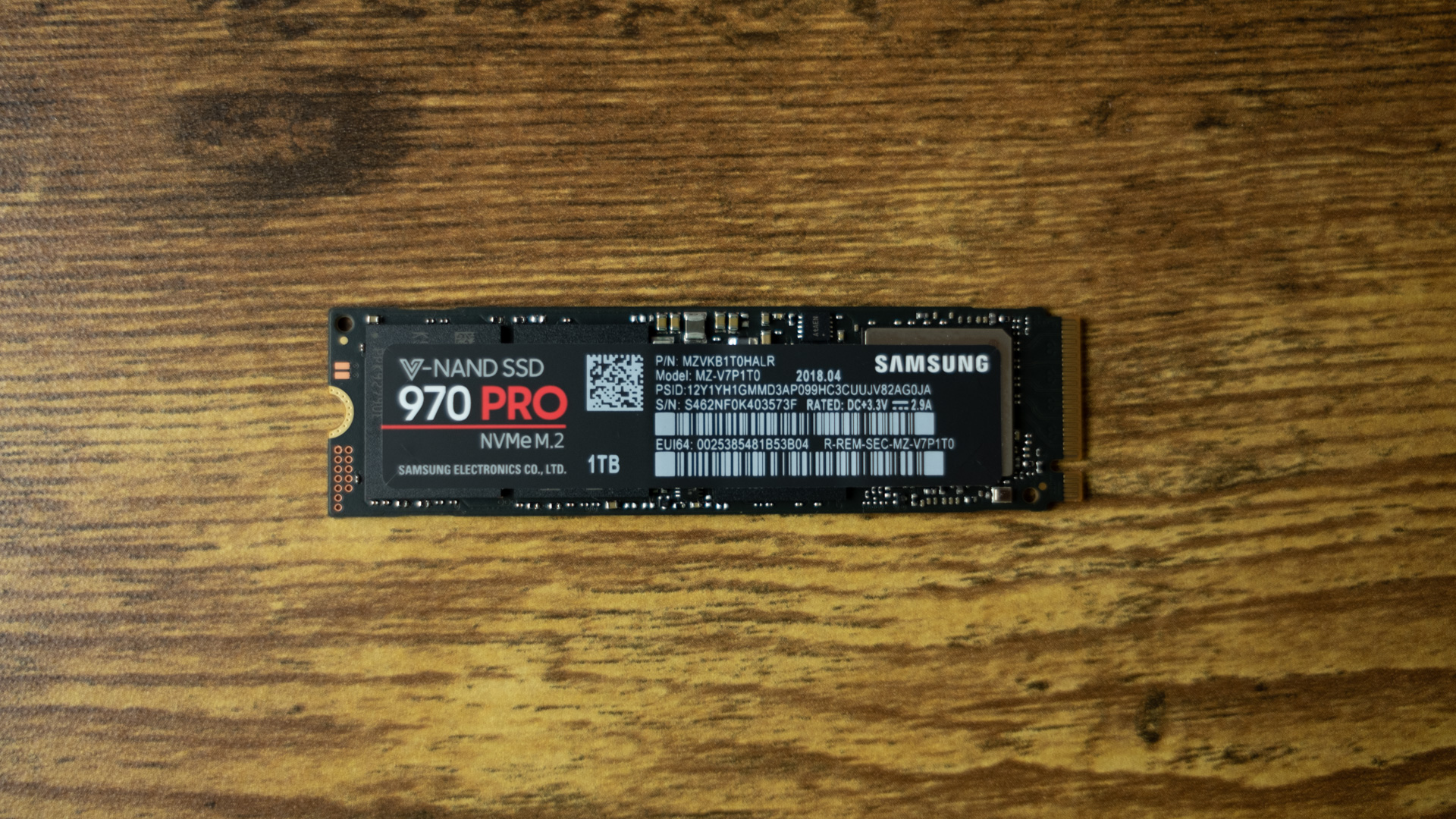TechRadar Verdict
Still the fastest consumer SSD, however, rather than the blow-out of years past, the Samsung 970 Pro only holds a slim lead over its rivals, including Samsung’s own 970 Evo, leaving us few reasons to choose it over more affordable options.
Pros
- +
The fastest SSD money can buy
- +
Reliable for years
- +
Substantially higher write speeds
Cons
- -
Not much faster than rivals
- -
Slightly pricier than competitors
- -
Read speeds remain the same
Why you can trust TechRadar
The Samsung Pro line has remained as the unchallenged king of solid-state drives for the last few years. But recent contenders, like the WD Black NVMe SSD, have proven that Samsung can’t sit on its laurels anymore. So, the company has delivered its fastest consumer drive ever: the Samsung 970 Pro.
However, unlike in years past, the Samsung 970 Pro only manages to hold onto a slim lead over the WD Black NVMe SSD – and even its understudy, the Samsung 970 Evo. While the Samsung 970 Pro remains as the very best SSD money can buy, we find little reason to pick it over more affordable drives.

Features and price
Samsung’s Pro line of SSDs have always been a little bit pricey, but thankfully it seems like the new 970 Pro drives are a little bit more affordable. Starting at $229 (£219, AU$419) for a 512GB capacity drive, the Samsung 970 Pro is little bit more attainable than years past, and that even includes the 1TB model priced at $495 (£389, AU$799).
Comparatively, you’ll still find the Samsung 960 Pro going for higher $249 (£249, AU$399) and $539 (£459, AU$699) prices for the same respective 512GB and 1TB capacities, though this will likely be corrected. Unfortunately, as of this writing, it doesn’t seem as though there is a 2TB version of Samsung’s newest flagship SSD yet.
Western Digital has a leg up on pricing with 250GB WD Black NVMe SSDs starting at $99 (£109, AU$179), followed quickly by $194 (£199, AU$299) 500GB and $399 (£394, AU$619) 1TB capacities. Of course, the WD Black NVMe SSD’s real nemesis is Samsung’s more affordable 970 Evo, which basically follows WD’s pricing model above.
Not only is the Samsung 970 Pro priced better, it’s also a fair bit faster than its predecessor. Although the drive’s 3,500MB/s sequential read speed hasn’t seen increase, the 2,700MB/s sequential writes is substantially quicker than the 2,100MB/s the Samsung 960 Pro clocked in at.
However, as we mentioned before, competition in the market is hotter than ever. The WD Black NVMe SSD wins with a faster sequential write of 2,800MB/s, but slower 3,400MB/s sequential reads.
Sign up for breaking news, reviews, opinion, top tech deals, and more.
The secret behind the 970 Pro’s newfound speed is a new Phoenix controller and Samsung's latest 64-layer 3D V-NAND. Whereas most of the consumer SSDs have adopted Three-Layer Cell (TLC) flash for its greater density and affordability, Samsung has stuck to its guns with the faster and heartier Multi-Layer Cell (MLC) NAND – and this pays dividends to its unrivaled performance.
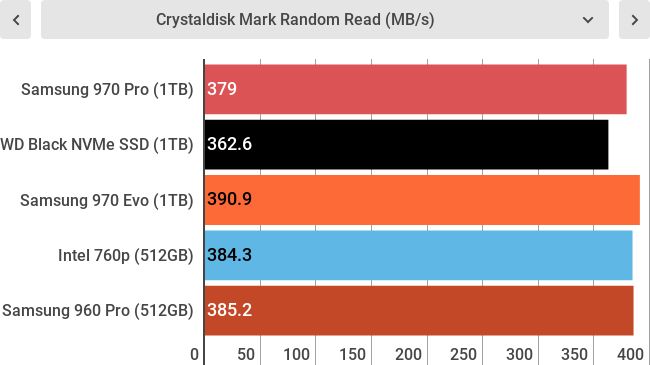
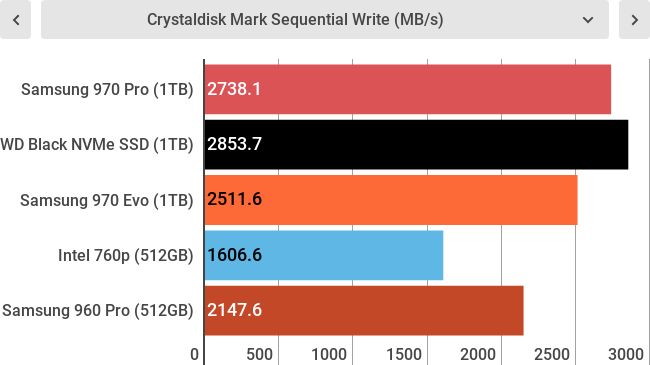

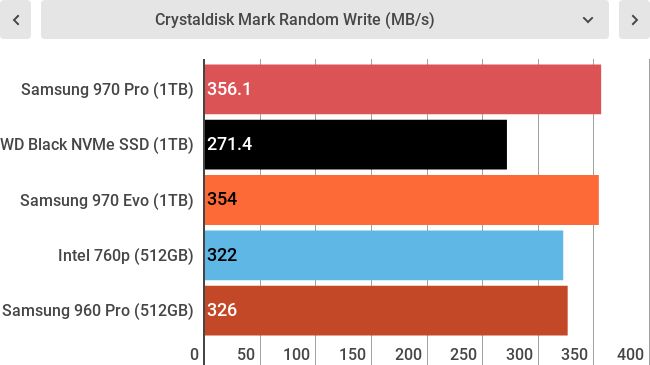
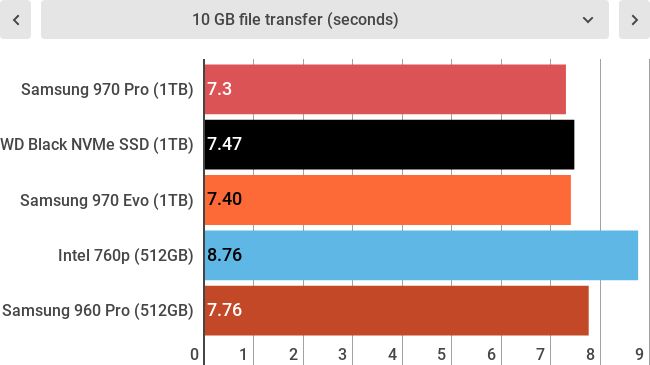
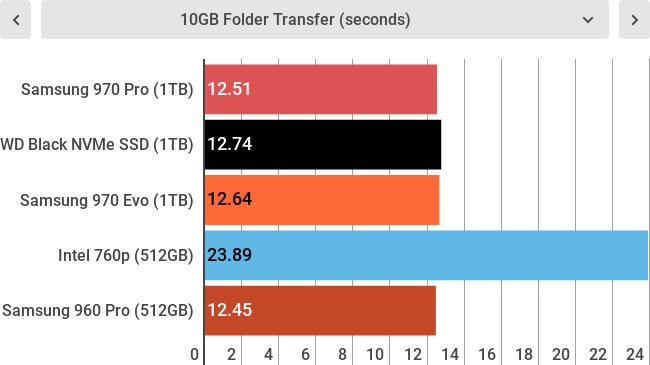
Performance
The Samsung 970 Pro performs exactly as we expected it to according to its on-paper specs. Read speeds are virtually identical to that of its predecessor. Meanwhile, the 970 Pro also sees substantially faster sequential and random write speeds. Still, the WD Black NVMe SSD manages to pull ahead with the a substantially faster sequential write speed.
In our anecdotal file transfer tests, the Samsung 970 Pro manages to outpace everyone else, but the difference is really only measurable in milliseconds. Unfortunately, Samsung’s greatest strength in its drives is their reliability, which can’t be measured in megabytes or seconds, but years of endurance.
The most interesting trend we see in our benchmarks is how close the 970 Evo and 970 Pro match each other’s performance. In the past, the Evo was considered to be an affordable – but markedly slower –alternative to the Pro, which was an expensive indulgence for those looking only for the ultimate SSD. Now, it seems there’s even more reason to go for the Evo rather than the Pro.
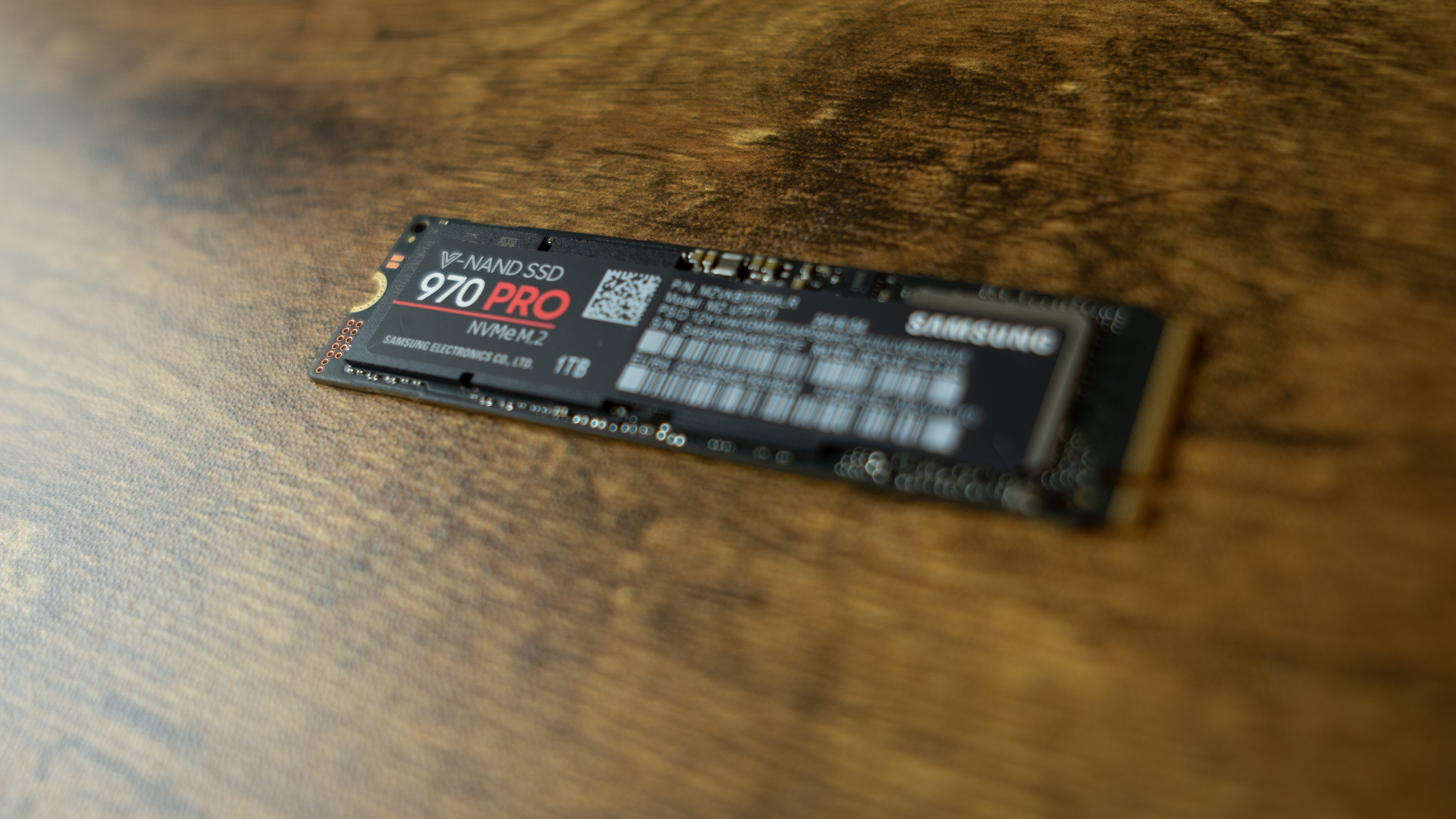
Final verdict
The Samsung 970 Pro retains its crown as the king of solid-state drives, but it’s a title being challenged by even Samsung’s own products. Samsung has become its own worst enemy by making the 970 Evo so much better, to the point where it barely lags behind the 970 Pro. Meanwhile, the WD Black NVMe SSD outshines Samsung’s flagship drive even though its batting for league under the 970 Pro.
Users should really only consider the Samsung 970 Pro if they absolutely need the fastest and most reliable storage medium on the market. Video editors and other media creatives, for example, might demand the absolute best out of their SSDs, but everyone else can more than get by with premier SSDs, like the Samsung 970 Evo and WD Black NVMe.

Kevin Lee was a former computing reporter at TechRadar. Kevin is now the SEO Updates Editor at IGN based in New York. He handles all of the best of tech buying guides while also dipping his hand in the entertainment and games evergreen content. Kevin has over eight years of experience in the tech and games publications with previous bylines at Polygon, PC World, and more. Outside of work, Kevin is major movie buff of cult and bad films. He also regularly plays flight & space sim and racing games. IRL he's a fan of archery, axe throwing, and board games.
